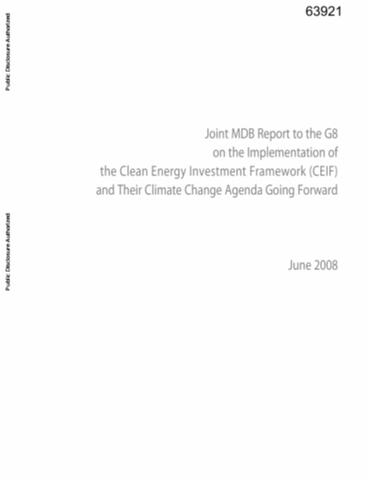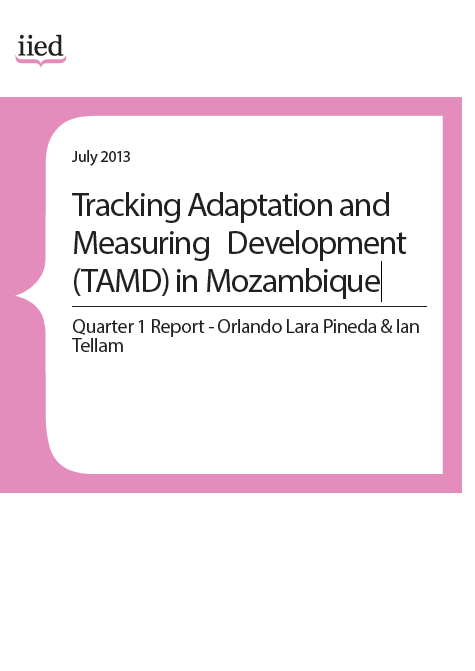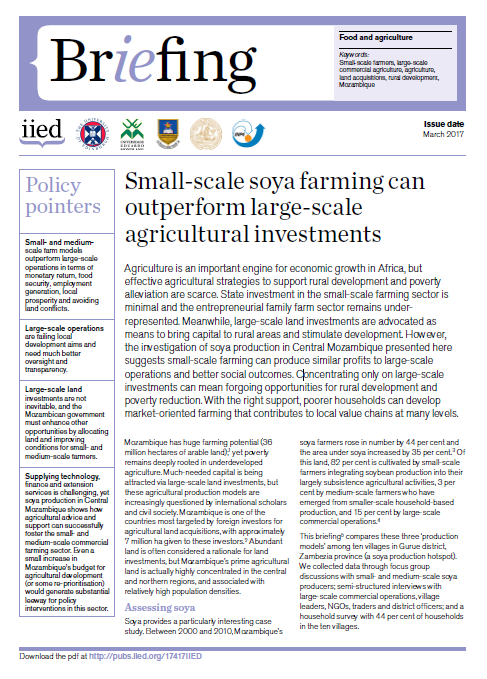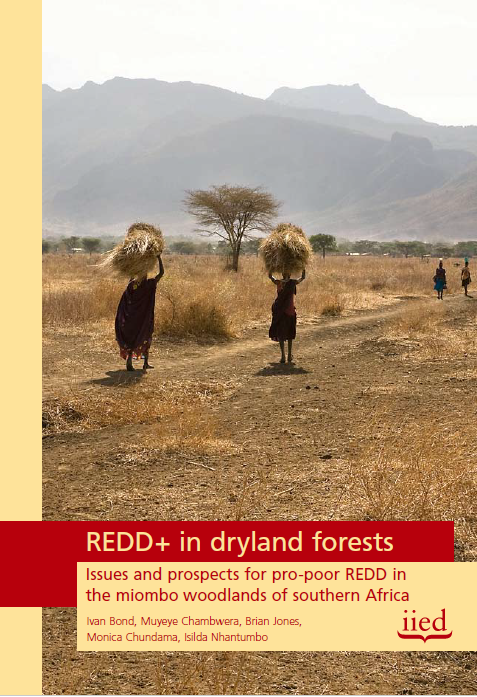Joint MDB Report to the G8 on the Implementation of the Clean Energy Investment Framework and Their Climate Change Agenda Going Forward
The 2005 Gleneagles G8 summit in July 2005 stimulated a concerted effort of the Multilateral Development Banks (MDBs) to broaden and accelerate programs on access to energy and climate change mitigation and adaptation through the Clean Energy Investment Framework (CEIF). At the Gleneagles summit, it was agreed that a report on the implementation of the CEIF would be prepared for the 2008 G8 (Group of Eight: Canada, France, Germany, Italy, Japan, Russia, the United Kingdom, and the United States) summit hosted by Japan.












